Nobody feels a good game or a bad game more than professional football players. The season-to-season attrition rate and the unguaranteed contract structure of the NFL mean that the vast majority of players are in perpetual contract years. One good game might be enough to get a player a look the following year. A skill-position player might only get a start or a handful of touches to prove himself before being buried on the depth chart.
With that in mind, there are plenty of players, coaches and executives with a lot riding on what happens in the weeks to come over the second half of the season. Think about someone like Case Keenum, who was nearly benched after throwing two interceptions against Washington in Week 9 a year ago. Keenum kept his job in Minnesota, won six of his next seven games and earned $25 million guaranteed in the subsequent deal he signed with the Broncos during the offseason. Had Keenum been benched for Teddy Bridgewater, it might have been the former Louisville star earning the big contract and Keenum settling for a one-year pact.
Let's look at the people around the league who have the most to gain or lose over the next few months. Many of those players were impacted by the games we just saw in Week 8. Let's start with a quarterback who was banished to the bench on Sunday:
Jump to player or coach:
Winston | Bell | Carr | Ansah | Ford
Swearinger | J. Brown | Jackson/Haley
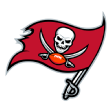
Jameis Winston, QB, Tampa Bay Buccaneers
Note: Bucs coach Dirk Koetter announced on Monday afternoon that Ryan Fitzpatrick will start in Week 9.
There are three NFL teams in Florida. One has an injured starting quarterback. Another benched its disappointing young quarterback last week. The third Florida team did the same Sunday. I mentioned last Monday that the Jaguars were likely to restore Blake Bortles to the starting lineup quickly, given that they didn't really have a viable backup and already were priced into playing Bortles through 2019.
The Buccaneers might stick Winston back into the lineup for Sunday's game at the Panthers, but they don't have the same excuses for maintaining the status quo. In Ryan Fitzpatrick, they have a credible backup who was better in this scheme with these teammates as recently as last month. And while the Bucs once used the first overall draft pick on Winston and picked up his fifth-year option for 2019 before the season, the only thing that would force them to pay Winston after this season would be an injury. His contract status means that we have to think about Winston's future differently.
Even given that Fitzpatrick was benched for Winston earlier this year, the two haven't been remotely comparable. While they've split the pass attempts in Tampa close to 50-50, the Bucs have been far more productive with Fitzpatrick under center this season:
I don't think the difference between the two would be this large going forward, but it's reasonable to suggest that Fitzpatrick is the better quarterback. Their numbers over the past four years have actually been virtually identical. Since Winston entered the league, he has posted a passer rating of 86.1 and a Total QBR of 56.5. Over that same time frame, Fitzpatrick has been good for a passer rating of 85.4 and a Total QBR of ... 56.6.
With the Buccaneers, though, Fitz has posted a 101.6 passer rating and a 69.1 Total QBR, and I wonder if he's the better fit for this offense, which is designed to scare teams vertically. He has been far more efficient on deep passes, completing 60 percent of his throws 16-plus yards downfield while averaging 20.1 yards per attempt. Winston is at 45.9 percent and 10.5 yards per deep pass.
The reason Winston was benched, though, was his turnover problem. The Florida State product has thrown at least two interceptions in each of his four appearances this season, which looks even worse when you consider that he played only one half against the Bears in Week 3 and three quarters against the Bengals on Sunday. Winston has thrown 10 picks on just 148 pass attempts. He has fumbled four times, losing one.
Watch those 10 interceptions and you might be able to squint and make excuses. Winston has had two of those picks tipped by pass-rushers at the line of scrimmage. One pass bounced off a defender's helmet and went 10 feet into the air. He appears to have played against linebackers with some of the best hands in league history, given how players like Aaron Lynch and Jamie Collins have managed to catch passes most linebackers would typically tip away or drop.
And yet you can't hand-wave away these throws. Winston had an interception tipped at the line, but it came on a play in which he froze and seemed to be in a staring contest before getting rid of the ball. He has repeatedly struggled to recognize linebackers and edge rushers dropping late into his throwing lanes, which was a problem on the Lynch pick. Throws over the middle of the field have been an absolute crapshoot. By the third quarter Sunday, Winston was missing open receivers by nearly 7 yards, as was the case with Cameron Brate per the NFL's Next Gen Stats:
"Gimme that."
— Cincinnati Bengals (@Bengals) October 28, 2018
- @jordanevans_50, probably#TBvsCIN #SeizeTheDEY pic.twitter.com/CjwaCO5001
As ESPN's Trey Wingo pointed out on Twitter, even if you want to say Winston isn't going to be this bad moving forward, it's also fair to say that he has always been this sort of quarterback. There are 17 quarterbacks who have thrown 1,500 or more pass attempts since 2015. Winston's interception rate is 3.2 percent, and no other quarterback is above 2.7 percent.
You can't blame the players around him, either. While you could make a case that Bortles' play has gotten worse because the Jags' offense around him has fallen apart thanks to injuries, Tampa's 10 other offensive starters haven't missed a game due to injury this season. The Bucs have a dominant receiving corps on paper, and those receivers have been far more productive when Fitzpatrick has been under center.
Tampa's hot start to the season feels like ancient history. The ESPN Football Power Index gave Tampa Bay a 54.6 percent shot of making it to the postseason after winning its first two games. Now, after a 1-4 skid, the Bucs are back down to a 5.7 percent chance of playing meaningful football in January.
So what are the Bucs' options?
1. Keep Winston in the starting lineup for the rest of the season and trade Fitzpatrick. The talk before Sunday's game was how DeSean Jackson had reportedly requested a trade away from Tampa, but you can imagine Fitzpatrick might also have held some value as a veteran backup who might offer teams with playoff aspirations some security if their starter were to get injured before the postseason. Fitzpatrick has only $1.1 million in prorated salary left on his contract, making the Harvard product an easy fit on most teams' salary caps.
With Tampa's playoff chances dwindling, the most logical thing to do with the rest of the season would be to evaluate Winston in advance of the 2019 offseason, when the Bucs could choose to play Winston through his fifth-year option, sign the 24-year-old to an extension, trade him to another team, or release Winston without paying him his fifth-year option of $20.9 million.
This is the high-risk, high-reward choice. If Winston does improve, the Bucs will end up feeling great about sticking it out with a player they've felt was franchise quarterback material for several seasons. They won't have to devote serious resources toward going after another passer in the draft or via free agency. They also would presumably get a mid-to-late-round pick from another team for the 35-year-old free-agent Fitzpatrick, who isn't of much use on a team going nowhere.
The risk is that Winston's fifth-year option is guaranteed for injury, meaning that Tampa would be liable to pay the full $20.9 million if Winston suffered a serious injury and wasn't able to pass a physical in 2019. (The Steelers are paying Ryan Shazier $8.7 million this season under the same contract structure.) The Bucs have $25.5 million in cap space next year even with Winston's fifth-year option on the books, so they could survive if Winston were to go down, but NFL organizations are loath to run the risk of eating nearly $21 million in dead money for someone who can't play.
2. Install Fitzpatrick as the starter for the rest of the season and bury Winston on the depth chart.
Here's your low-risk, low-reward solution. Fitzpatrick has been the better quarterback, and while that isn't going to matter much for Tampa's playoff chances, it means a lot to the guys in charge. Both coach Dirk Koetter and general manager Jason Licht would be in line to lose their jobs with a disappointing season. ESPN's Brian Burke's hot seat model gave Koetter a 64 percent shot of losing his job with a 4-12 record this season.
By starting Fitzpatrick, the Bucs would be incurring some sort of a moral hazard, in which their management would be optimizing their ability to keep their jobs, even if it comes at the expense of the franchise's long-term outlook. As well as Fitzpatrick has played in Tampa, the chances of him launching into a multiyear career as the starter after turning 36 in November are remote. In the absence of a playoff race, the Bucs are better off finding out more about Winston than they are in playing Fitzpatrick, even if the latter increases their chances of approaching .500 in the South.
Burying Winston would ensure that the Bucs aren't stuck paying out his fifth-year option in 2019, an issue that might very well have led to the Jags re-signing Bortles last offseason. While Tampa could instead look to trade Winston, I don't anticipate he'll have much of a market. Winston's off-field misbehavior is a non-starter for several franchises. Few teams want to run the risk of eating $20.9 million for an injured Winston next season, and he wouldn't be much of a bargain at that rate.
His propensity for turnovers also won't appeal to teams that might theoretically be looking for a pair of safe hands, like the Jaguars. The only team with a competitive record that doesn't have a solution at quarterback or a first-round pick taking snaps is the Dolphins, who might theoretically pursue Winston if Ryan Tannehill isn't close to returning. That isn't much of a trade market.
3. Restore Fitzpatrick as the starter for the time being. This option falls somewhere around moderate risk, low reward. While Fitzpatrick struggled in the first half against the Steelers and Bears in September, the Buccaneers were too aggressive to move on from their interim starter. He had a 114.4 passer rating and a 75.3 Total QBR when the Bucs benched him for Winston in the middle of a rough start against the Bears, who have one of the best pass defenses in football when Khalil Mack is healthy.
Fitzpatrick isn't the best option for the long-term prospects of the franchise, and his long-term track record suggests he's a backup-caliber quarterback, but he also did enough during his stint in 2017 and across the start of 2018 to justify getting a longer look at the job while Winston regroups. If Koetter gives him a shot -- and a longer leash than one bad half of football against a great defense -- it might buy the coach some time while giving Tampa flexibility with its quarterback options. If Fitzpatrick continues to play well, the Bucs could move on from Winston and sign Fitzpatrick to a short-term deal while waiting to find their long-term solution in the 2019 or 2020 draft. If Fitzpatrick struggles, the Bucs could go back to Winston, although that scenario would likely mean the end of Koetter's time in charge.
4. Hand the job back to Winston on a short leash. This seems like the most plausible answer, and it falls within the category of moderate risk, moderate reward. The decision to bench Fitzpatrick almost immediately for Winston suggests that Tampa's plan all along was to go straight to its fourth-year quarterback, which is logical. Winston has a higher ceiling given his age, and while the Bucs run the risk of being stuck with the bill for an injured Winston in 2019, the chances of that happening are relatively slim.
At the same time, they probably have to consider handing things over to Fitzpatrick. Winston is single-handedly sinking the offense for stretches of games right now, and the Bucs need to see him improve before thinking about extending their incumbent after the season. It's difficult to think of another team that will find Winston's combination of interceptions on the field and repulsive behavior off it as appealing as the Buccaneers have over the past several seasons. For Winston, it might be Tampa or bust. For Koetter, it might be Winston or bust. The Bucs might bust either way.

Le'Veon Bell, RB, Pittsburgh Steelers
The most likely return date for Bell is on Halloween, given that the league's trade deadline is Oct. 30. Assuming Pittsburgh's star back reports to the Steelers and signs his prorated franchise tag, can we look back at his holdout as a success? The answer to that question might only become clear in the offseason.
Let's start with what we do know. Bell sat out the first half of the season, so he didn't suffer the sort of serious injury that would have jeopardized a long-term contract. At the same time, Bell has missed out on more than $6.8 million of game checks over that time frame. You imagine $6.8 million could have bought Bell a significant loss-of-value policy while securing his future.
If Bell hoped that his absence would make Pittsburgh hearts and NFL checkbooks grow fonder, his gambit appears to have failed. His offensive linemen scolded Bell for being selfish, and while they said they were over the issue after their September comments, the holdout doesn't appear to have won Bell many supporters.
In terms of Bell's on-field absence, the Steelers were just fine with James Conner. He's not the same caliber of receiver as Bell, and he doesn't have Bell's outrageous patience or near-instant acceleration, but as we saw from Conner's 212-yard, two-touchdown game against the Browns on Sunday, the second-year back is capable of serving as a reasonable facsimile of his much more expensive brethren. Conner didn't touch the ball as frequently as Bell has over the past several seasons, but he hasn't been far off this season on a touch-by-touch basis from the 2016-17 edition of Bell:
The Steelers averaged 24.8 points per game on offense with Bell in the lineup in 2016 and '17. The offense has averaged 26.6 points per game during his absence this season. I don't think it's fair to say Pittsburgh has been better without Bell -- scoring is up leaguewide, after all -- but the difference between Bell and Conner has not been commensurate with the difference in their salaries, which amounts to right around $14 million over a full season.
It's tougher for Bell to make the case that he's a transcendent player after seeing what Conner has done. Bell's argument that the Steelers needed to pay the player and not the position doesn't seem justified by what has happened in his absence. The Steelers have problems, but they are at cornerback, not running back.
What happens next could mean millions. If Bell comes back and pulls a hamstring, it could cost him a month. If he suffers a more serious injury, the consequences could be even more significant. If Conner outplays him over the rest of the season, there are going to be teams that have second thoughts about paying Bell $15 million per season when the Steelers were able to plug someone else in for close to the minimum and get a similar level of play. There's a nonzero chance the Bell market never materializes and he settles for a one-year deal in the hopes of hitting free agency again after a massive 2019.
Of course, there's also a scenario in which Bell's stock rises. If a fresh Bell gets to play half the season on fresh legs and rest more frequently with Conner spelling him for stretches, he might be able to piece together a wildly impactful second half. If Bell is breaking off 50-yard plays every week and leading a dominant Steelers offense into a deep postseason run, teams with short memories might be inclined to go over the top to add a game-changer like Bell to the lineup.
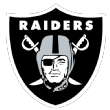
Derek Carr, QB, Oakland Raiders
Lost amid the furor of the Amari Cooper trade was the fact that the Raiders traded away Carr's top receiver. Cooper had been inconsistent over the previous year-plus, and a first-round pick might have been too good to pass up for a player the Raiders didn't value like a No. 1 wideout, but Oakland's quarterback is embarking on what could be a pivotal season with Jared Cook and Jordy Nelson as his top targets. Pretty good for 2013. Not so much for 2018.
The early returns for Carr weren't bad. Against an underrated Colts pass defense, Carr delivered arguably his best game of the season in going 21-of-28 passing for 244 yards with three touchdowns, no interceptions and a Total QBR of 93.9. It was his first game with a QBR over 90 since Week 8 against the Jets in 2015, almost exactly three years ago.
The numbers might be a little generous in watching the tape. Carr benefited from a clean pocket for most of the day, as he wasn't sacked, was knocked down just once and took pressure on a mere 16.9 percent of his dropbacks. His best play of the game came against one of those rare pressures, when he stepped up in the pocket in the red zone to find Brandon LaFell for a 6-yard score to give the Raiders a third-quarter lead. His work in setting up Cook on a fake screen-and-go for a touchdown was exactly what you would draw up on paper.
At the same time, Carr left some plays on the field. He pump-faked to one side and then hit Cook on a 30-yard completion on the opposite hashmark, but Carr's throw was behind Cook and forced the wide-open tight end to slow down. Cook probably scores with a better throw. The play didn't matter in the long run because the drive ended with the LaFell touchdown, but it was the difference between a good throw and a great one.
Later in the game, Carr missed an open receiver in what became a crucial moment. On third-and-3 with the score tied and 9:34 to go in the fourth quarter, Carr overthrew an open Seth Roberts on what should have been an easy conversion and a possible chunk play. NFL Next Gen Stats gave Carr, who had completed 17 straight passes, an 84.9 percent chance of hitting the throw. He missed it. The Colts scored and took the lead on their next possession and then scored again after a Doug Martin fumble. When Carr threw his next pass, the Raiders were down 14 points with 2:55 to go.
If Carr keeps this up, the Raiders might be inclined to keep their quarterback around as they continue to rebuild. That could be lucrative. Carr is penciled in for a base salary of $19.9 million in 2019, which is the fifth-largest salary on the books for next season. If the Raiders cut their young quarterback, it's difficult to imagine Carr getting that much money elsewhere.
Carr could keep his salary up by getting traded, but I don't think he'll move before Tuesday's deadline. Money isn't the issue, given that any team would have to absorb $3.9 million in prorated base salary to acquire Carr with no further guaranteed money in his contract. The Raiders might theoretically be willing to shop Carr if another team is willing to send a first-round pick, but he hasn't played well enough for that to make sense. If he can keep up this level of play over the rest of the campaign, the Raiders will have an interesting decision to make this offseason.
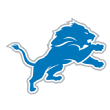
Ezekiel Ansah, DE, Detroit Lions
It has been a lost season for Ansah, who suffered a shoulder injury in Week 1 and hasn't played since. Ansah has been practicing throughout on a limited basis, so he has seemed close to returning, but the Lions have had their star pass-rusher for just 19 defensive snaps. In perhaps-related news, the Lions ranked 28th in pass defense DVOA heading into Sunday's game with the Seahawks.
It didn't go well. The Lions were no match for the Seahawks and their newfound competency up front protecting Russell Wilson. Detroit sacked Wilson twice on 19 dropbacks, but the Seahawks star carved them up for 248 yards and three touchdowns on 17 pass attempts. A fourth score only came off the books because tight end Nick Vannett stepped out of bounds before catching a would-be TD.
Detroit has actually produced good sack numbers this season, but it has been a bit of a fluke. The Lions have the league's best sack rate at 10.1 percent, but they're just 20th in the league in pressure rate. As you might suspect, they are turning a disproportionate amount of their pressures into sacks. The leaguewide average is 22.1 percent, but the Lions top the charts at 36.5 percent. It'll be tough to keep that up. The Jaguars led the league in that category this time last season at 36.7 percent, but they turned just 20.8 percent of their pressures into sacks in Weeks 9-17.
The Lions will need Ansah back, and Ansah would have a ton to gain from a big second half. If he excels, the team will either be forced to pay its former first-round pick a franchise tag of $20.5 million or let him hit free agency, where a market desperate for pass-rushers would likely target Ansah for something in the range of a four-year, $74 million deal. If Ansah continues to miss time with his shoulder injury and plays only a few games toward the end of the season, though, his market would likely consist of one-year offers with a chance to rebuild his value and hit free agency again after 2019.
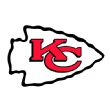
Dee Ford, OLB, Kansas City Chiefs
Likewise, one of the bright spots for the Chiefs' defense could become a free-agent opportunity if he's allowed to hit the market. Ford seemed on the cusp of big things after a 10-sack season in 2016, but the former first-rounder missed 10 games with a back injury a year ago while racking up only two sacks. The Chiefs were stuck holding the bag for Ford's fifth-year option, given that the 27-year-old would have struggled to pass a physical after undergoing back surgery.
Ford is having a career year, and he had one of the best games of his life in Sunday's win over the Broncos. Ford racked up three sacks and forced two fumbles, both of which ended drives. He beat both tackles, Garett Bolles and Billy Turner, for quarterback takedowns. The Auburn product now has sacks in five of Kansas City's past six games and has racked up eight sacks to go with 16 knockdowns. He's having a career year at the right time.
Ford is an unrestricted free agent after the season, and the Chiefs will be stuck in a tight squeeze. The former first-rounder already has missed snaps with a groin injury and was ejected from a game earlier this season. If he's absent for a chunk of the second half and slows down, Kansas City probably will look at him as a franchise-tag target for 2019. If Ford keeps up things and finishes the season with 15 sacks, though, the Chiefs will likely have to look toward a long-term contract. Ford could very well be in line for a five-year deal in the $75 million range if he finishes strong, and the Chiefs might need to cut fellow pass-rusher Justin Houston to free up the cap room to keep Ford around.

D.J. Swearinger, S, Washington
One of the year's breakout defensive backs, Swearinger has taken his time to round into Pro Bowl form. The former second-round pick quickly flamed out in Houston, thanks to a propensity for freelancing and a disinterest in playing special teams. The South Carolina product bounced around the Bucs and Cardinals, with Bruce Arians once threatening to cut Swearinger for joining Chandler Jones in a celebration dance, before revitalizing his career in Arizona and signing a three-year, $13.5 million deal with Washington before the 2017 season.
The athletic Swearinger has always been able to hit, but his instincts have improved greatly, which Swearinger chalks up to unsurpassed film study. The result: Swearinger has 11 interceptions since the start of 2016, which is tied for second most in the NFL behind Marcus Peters' 12.
Watching film of Eli Manning this season might be a challenge for even the strongest football obsessives, but Swearinger did his homework and came away with two of his league-leading four interceptions during Sunday's win over the Giants. The first one was the pick of the bunch, as Swearinger shoved a clear-out receiver by before outmuscling Odell Beckham Jr. for a red zone interception, saving a minimum of three points. Later in the game, he caught what even Swearinger would have to describe as an arm punt from Manning on third-and-18.
Swearinger is a bargain on his current deal, as the 27-year-old is making $3 million this year and is due only $4.5 million in the final year of his contract in 2019. If he continues to play at this level, it would hardly be a surprise if Washington gave him an extension with a hefty raise next spring.

John Brown, WR, Baltimore Ravens
One of the biggest success stories from this year's free-agent class, Brown finally looks healthy after struggling through 2016 with a cyst on his spine and various injuries in 2017, perhaps attributable to his sickle-cell trait. The former Cardinals deep threat was held to 28 yards on Sunday during a loss to the Panthers, but over the first half of the season, Brown has racked up 586 receiving yards and four touchdowns, both of which lead the Ravens.
Brown, who signed one-year, $5 million deal, could be playing for a big contract in a desperately thin free-agent market next March. If he keeps up this pace and finishes the year approaching 1,200 receiving yards, Brown could look for something similar to the three-year, $33.5 million deal DeSean Jackson signed with the Bucs before the 2017 season. If Brown isn't able to stay healthy and finishes the season with a bunch of 24-yard games and DNPs, he's probably going to come away with another one-year deal for modest money.
Brown is one receiver who might benefit from a possible change at quarterback for the Ravens. Joe Flacco continues to struggle on the sort of deep passes at which Brown excels. When the Ravens throw 16 or more yards in the air this season, Flacco has posted a passer rating of 51.5 and a Total QBR of just 45.1. The only quarterbacks in the league with a worse passer rating on deep throws are Winston (41.0) and Josh Allen (12.0). Over the past three seasons, the only quarterback who has been worse on those throws by Total QBR is Bortles. The Ravens don't appear to be set to make a change under center, but if they do during the season, Brown would be the most likely target to pick up his game further.
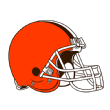
Todd Haley and Hue Jackson, Cleveland Browns
Note: This was written before the Browns fired Jackson on Monday morning.
Let's finish by working with a set of coaches seemingly at odds. Reports before Sunday's loss to the Steelers suggested Jackson and Haley have been butting heads, and that the organization might seek to fire its coach and/or offensive coordinator if the team continues to struggle. The Cavaliers, who might have been jealous of another team in Cleveland suffering through more dysfunction, responded to these weekend reports by firing coach Tyronn Lue after an 0-6 start.
The Browns aren't 0-6, but at 2-5-1, they've left would-be wins on the table with poor special-teams play and questionable decision-making. Cleveland actually got a rare big play on special teams Sunday when the Steelers failed to field a free kick after a safety, with the Browns recovering the live ball for what amounted to a 56-yard onside kick. The Browns scored a touchdown to make it 16-12 in the third quarter, but new kicker Greg Joseph missed an extra point, and the Steelers promptly ran Conner up and down the field for 17 consecutive points before the Browns scored in garbage time.
The offense is still a work in progress. During the opening drive of the game against the Steelers, Baker Mayfield and his running backs seemingly had to contend with free rushers in the backfield on every snap. Mayfield has posted a passer rating of 52.0 in the first quarter, when the Browns should be running scripted plays designed to get him in rhythm and grow the rookie's confidence. (Mitchell Trubisky, for example, has a 122.4 passer rating in the first quarter.) Undrafted free agent Desmond Harrison, who was responsible for the safety, has been wildly inconsistent at left tackle.
The solutions are not yet clear. Jackson will say things about how he needs to use players such as Duke Johnson and Nick Chubb more without actually increasing their workload, as was the case before the Carlos Hyde trade. Haley seemed to add more RPOs and creativity to the attack after replacing Tyrod Taylor with Mayfield, but just 18.2 percent of the rookie quarterback's dropbacks have come out of play-action, the third-lowest rate in the league among passers with 200 or more this season. Mayfield's QBR is nearly 13 points higher on play-action, and he threw more than 44 percent of his passes with some element of play-action in his final season at Oklahoma.
Both coaches have a lot to lose. Haley might have been dreaming of a head-coaching job if the Steelers had been able to take that final step into a Super Bowl while he was their offensive coordinator. Instead, his contract wasn't renewed after the 2017 season, and he went to Cleveland. If he gets fired halfway through Year 1, Haley might have to look for a college job or settle for a lesser role at the NFL level in 2019.
Jackson, meanwhile, has to be all-in with the Browns. While the former Raiders coach managed to keep his job for a third season despite starting 1-31 in Cleveland, it's almost impossible to imagine the 53-year-old getting a third NFL head-coaching opportunity. This is Jackson's last opportunity to run an NFL team unless he drastically turns around the Browns, and while his solution to this point has seemingly been to up the Hue quotient, you have to wonder if he's feeling superfluous. You can't really make a strong case that Jackson is focusing on managing the game given his comments to the media.
The Browns understandably want the best atmosphere possible for Mayfield, but if you're trying to figure out whether the Browns should fire Haley or Jackson, I'm not sure either seems like a good idea. Cleveland is not going to find a great coaching candidate or offensive coordinator in midseason. Haley hasn't done much to show that he deserves a promotion. Jackson doesn't need or deserve more responsibility. The best thing for Mayfield is likely for the Browns to try to find a stable, creative coach this offseason. I wonder if Mayfield knows a guy.
